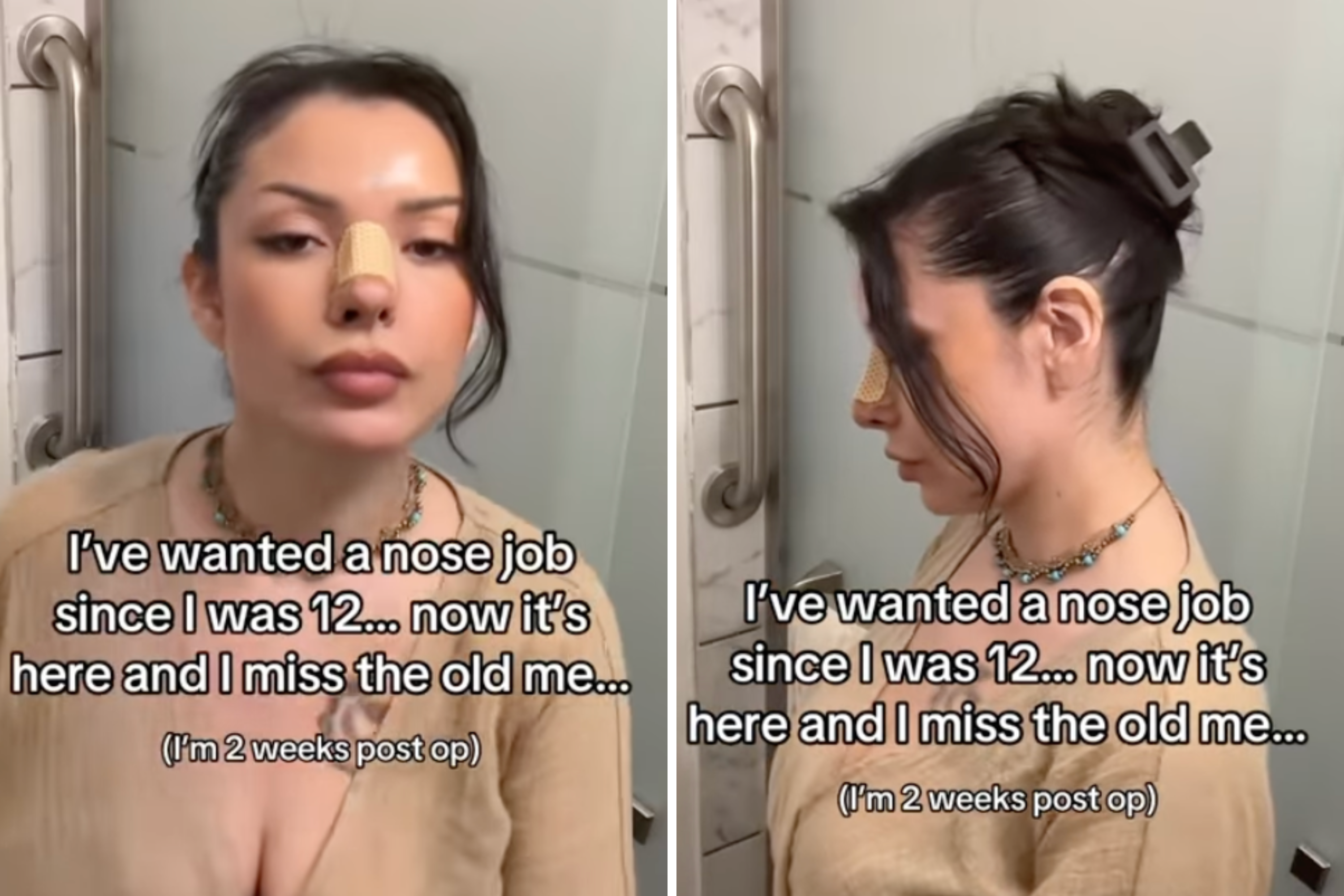By Lydia Patrick
A woman spent decades dreaming of a nose job—but when she finally got it, the experience proved more emotionally complex than expected.Wendy Macias (@starshipleela), 35, a senior visual tester from Los Angeles, began feeling self-conscious about her nose when she was just 5 years old. In a now-viral Instagram post viewed over 2.6 million times and liked more than 7,800 times, she opened up about the years of insecurity that led her to surgery.Macias told Newsweek that her insecurities began in childhood when her brothers nicknamed her “Narizona,” a Spanish slang term meaning “big-nosed girl.”Because she resembled her father, Macias said people often commented that she looked like him—something she misinterpreted as a child to mean she looked masculine.By age 12, Macias said she received a video camera for Christmas and decided to film her profile. “That’s when I realized how curved my nose actually was and, from then on, I hated my profile,” she added.Despite her long-held desire for rhinoplasty, Macias kept her wish mostly private. At the beginning of the year, she told a few close friends she was finally ready to pursue the surgery. She began researching doctors in Los Angeles but found the prices out of reach—until social media led her to a surgeon in Tijuana, Mexico.After a consultation, Macias made a bold declaration to herself and others that she had the funds to go ahead with the procedure—even though she didn’t yet. Just a week and a half later, an unexpected refund check from the Department of Education arrived. “It reinforced to me that God was helping me get this done,” she said.Macias underwent rhinoseptoplasty on May 27 in Tijuana.Initially, the post-op experience was physically manageable but emotionally jarring.”I felt completely fine, no pain at all. But I was also in a daze … I absolutely couldn’t breathe out of my nose. After a few hours, I constantly had blood mixing with mucus in the back of my throat, and it was incredibly unpleasant. My mouth was also so incredibly dry for the next week … I had to keep spitting and drinking water every hour … I slept two or three hours the first night.” Macias said.In the weeks since, her feelings have been conflicted. Week four postsurgery, she is adjusting to her reflection.Complicating things was the reaction from her ex, who had opposed the surgery. “I couldn’t share it with my ex at the time because he was already angry that I had gone and done this procedure against his wishes,” Macias said.Now, she added she hopes her story serves as a reality check for others. “This procedure has the possibility to cause post-op depression induced by anesthesia and the medley of medication you have to take post-op,” Macias said, urging anyone considering rhinoplasty to ensure they have a strong support system. “In the end, it doesn’t matter how aesthetically beautiful we are; people will evidently remember how you made them feel.”Expert Weighs InDr. George Orloff, a board-certified plastic surgeon at Burbank Plastic Surgery, told Newsweek that rhinoplasty is often emotionally charged, especially for patients who have lived with insecurities for years.”The nose sits in the middle of your face … it’s impossible to ignore,” Orloff said. “A lot of folks come in carrying years of insecurity, sometimes dating back to childhood teasing. Surgery can absolutely boost confidence, but it’s not a magic switch for self-esteem issues if someone’s not mentally prepared for the change.”Orloff added that regret often stems from unrealistic expectations fueled by social media. “People think they can get a celebrity’s exact nose, but that’s rarely realistic … Even with 3D imaging, there’s no perfect prediction of how your tissues will heal.”Orloff also warned against undergoing surgery due to outside pressure.Surgeons, he added, must set clear expectations and be honest about anatomical limitations. “Sometimes, the best decision is actually not to do surgery at all if someone has unrealistic or unhealthy expectations. We’re never chasing perfection—it’s always about improvement.”Preserving ethnic identity is also key, Orloff said. “If surgery goes too far from their natural features, it can leave people feeling like strangers in their own skin.”He cautioned against traveling abroad for cheaper procedures without fully considering safety and post-op care.Instagram ReactsSocial-media users flooded Macias’ post with a mix of encouragement and empathy.”I’m a plastic surgery nurse, that’s a beautiful rhinoplasty but you need to let it settle and heal, it will look different,” one commenter said. “Mentally your brain will need time to adjust … the full healing process takes a good year.””Listen diva, you were absolutely beautiful before and you’re also absolutely beautiful now. It’s gonna be ok!” wrote another user named Taryn.Emily posted: “I felt the same way after my nose job. I panicked!! It was extremely swollen while it was healing and it was so weird to have something different. I love my nose now and am so happy with it.”Another summed it up simply: “Ok but … you actually look beautiful. It’s your face, so it’s a shock.”Do you have any viral videos or pictures that you want to share? We want to see the best ones! Send them in to life@newsweek.com and they could appear on our site.
